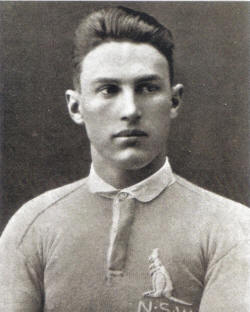

Queer Places:
University Of Cambridge, Cambridge CB2, UK
Bentworth Hall, Alton GU34, UK
7 Park Rd, Marylebone, London NW1 6XN, UK
The Albany, Albany Court Yard, Mayfair, London W1J, UK
93 Park Rd, St John's Wood, London NW8 7HT, UK
196
Adelaide Rd, King Henry's Rd, London NW3 3RP, UK
56 James St, Marylebone, London W1U 1HF, UK
 George Cecil Ives (1 October 1867 in Germany – 4 June 1950) was an English
poet, writer, penal reformer and early homosexual law reform campaigner. He
was friend with
Edward Carpenter, Oscar Wilde,
Lord Alfred
Douglas,
Havelock Ellis and
Magnus Hirschfeld.
With Whom, then, should I Sleep (1896) is cited as example in Sexual Heretics:
Male Homosexuality in English Literature from 1850-1900, by Brian Reade.
George Cecil Ives (1 October 1867 in Germany – 4 June 1950) was an English
poet, writer, penal reformer and early homosexual law reform campaigner. He
was friend with
Edward Carpenter, Oscar Wilde,
Lord Alfred
Douglas,
Havelock Ellis and
Magnus Hirschfeld.
With Whom, then, should I Sleep (1896) is cited as example in Sexual Heretics:
Male Homosexuality in English Literature from 1850-1900, by Brian Reade.
Ives was the illegitimate son of an English army officer, Gordon Maynard Ives, and the Spanish Baroness de Molarti. He was raised by his paternal grandmother, Emma Ives. They lived between Bentworth in Hampshire and the South of France.
Ives was educated at home and at Magdalene College, Cambridge,[1] where he started to amass 45 volumes of scrapbooks (between 1892 and 1949). These scrapbooks consist of clippings on topics such as murders, punishments, freaks, theories of crime and punishment, transvestism, psychology of gender, homosexuality, cricket scores, and letters he wrote to newspapers. His interest in cricket led him to play a single first-class cricket match for the Marylebone Cricket Club in 1902.[2]
Ives met Oscar Wilde at the Authors' Club in London in 1892. Ives was already working for the end of the oppression of homosexuals, what he called "the Cause." He hoped that Wilde would join "the Cause", but was disappointed. In 1893, Lord Alfred Douglas, with whom he had a brief affair, introduced Ives to several Oxford poets whom Ives also tried to recruit.
By 1897, Ives created and founded the Order of Chaeronea, a secret society for homosexuals which was named after the location of the battle where the Sacred Band of Thebes was finally annihilated in 338 BC. Members included Charles Kains Jackson, Samuel Elsworth Cottam, Montague Summers, and John Gambril Nicholson.
The same year, Ives visited Edward Carpenter at Millthorpe. This marked the beginning of their friendship.
In 1914, Ives, together with Edward Carpenter, Magnus Hirschfeld, Laurence Housman and others, founded the British Society for the Study of Sex Psychology. He also kept in touch with other progressive psychologists such as Havelock Ellis and Professor Cesare Lombroso.
The topics addressed by the Society in lectures and publications included: the promotion of the scientific study of sex and a more rational attitude towards sexual conduct; problems and questions connected with sexual psychology (from medical, juridical, and sociological aspects), birth control, abortion, sterilisation, venereal diseases, and all aspects of prostitution. In 1931, the organisation became the British Sexological Society. Ives was the archivist for the Society whose papers are now held by the Harry Ransom Center at the University of Texas at Austin.
Ives also visited prisons across Europe and specialised in the study of the penal methods, particularly that of England. He lectured and published books on the topic.
My published books: